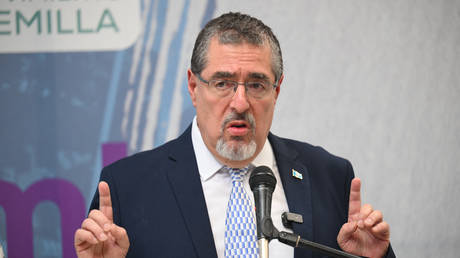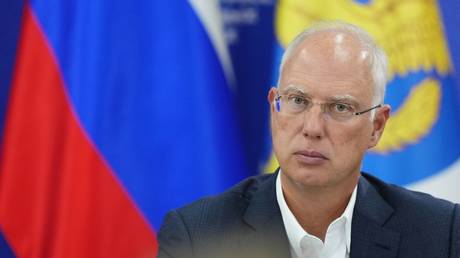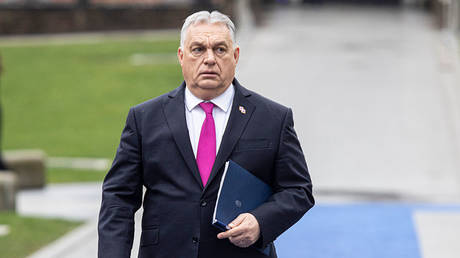
Bernardo Arevalo’s surprise electoral victory last month has led to efforts to deplatform his party
The mounting political and legal opposition to Guatemalan president-elect Bernardo Arevalo and his Movimento Semilla (Seed Movement) party constitute “illegal political persecution,” Arevalo, who ran on an anti-corruption platform, told reporters on Friday.
“We are seeing a coup d’etat in motion in which the justice apparatus is used to violate justice,” he said during a news conference, warning that “these political mafias will try to consummate the coup d’etat” during the four months preceding January’s swearing-in ceremony.
Citing his political opponent’s refusal to concede as well as a court decision earlier this week suspending Semilla’s status as a party, Arevalo denounced what he called “acts of illegal political persecution by those who refuse to accept the demand of the Guatemalan people for change and to close the chapter of corruption and impunity in the country.”
Specifically, the center-left politician named Attorney General Consuelo Porras, special prosecutor for corruption Rafael Curruchiche, and the judge who ordered Semilla’s suspension as enemies of democracy.
Arevalo won 58% of the vote in last month’s run-off against former First Lady Sandra Torres and her National Unity of Hope (UNE) party after Semilla came in second in the first round of voting. While Guatemala’s electoral tribunal recognized his victory as legitimate, UNE and its supporters insisted the vote was rigged.
In July, a coalition of UNE and eight other parties sought and obtained a review of the first-round results, doubting Arevalo – a sociologist and son of a former president – came by his second-place finish honestly.
While Guatemalan law prohibits the suspension of a political party during elections, efforts to deplatform Semilla began over a month before the runoff after a citizen complained the party had falsely used his signature to help establish itself. Curruchiche opened an investigation, claiming to find more than 5,000 illegal signatures – including 12 dead people – and revoked Semilla’s status as a party on Monday.
The decision relegated Semilla’s seven elected lawmakers to “independent” status, barring them from leadership positions in Congress. The legislature formally backed Curruchiche’s decision on Wednesday. Semilla has promised to fight the decision in court.
The Organization of American States urged the courts to tread carefully, finding last month that “the mechanisms and tools of Guatemalan justice are being used politically” against Arevalo and Semilla. Barring Arevalo from the presidency would violate constitutional order and the people’s will, OAS representative Eladio Loizaga said.
US Secretary of State Antony Blinken also weighed in, expressing concern on Friday over “continued actions by those who seek to undermine Guatemala’s democracy.” The Biden administration has recognized Arevalo’s win, despite frowning on his campaign-trail call for closer relations with China.




